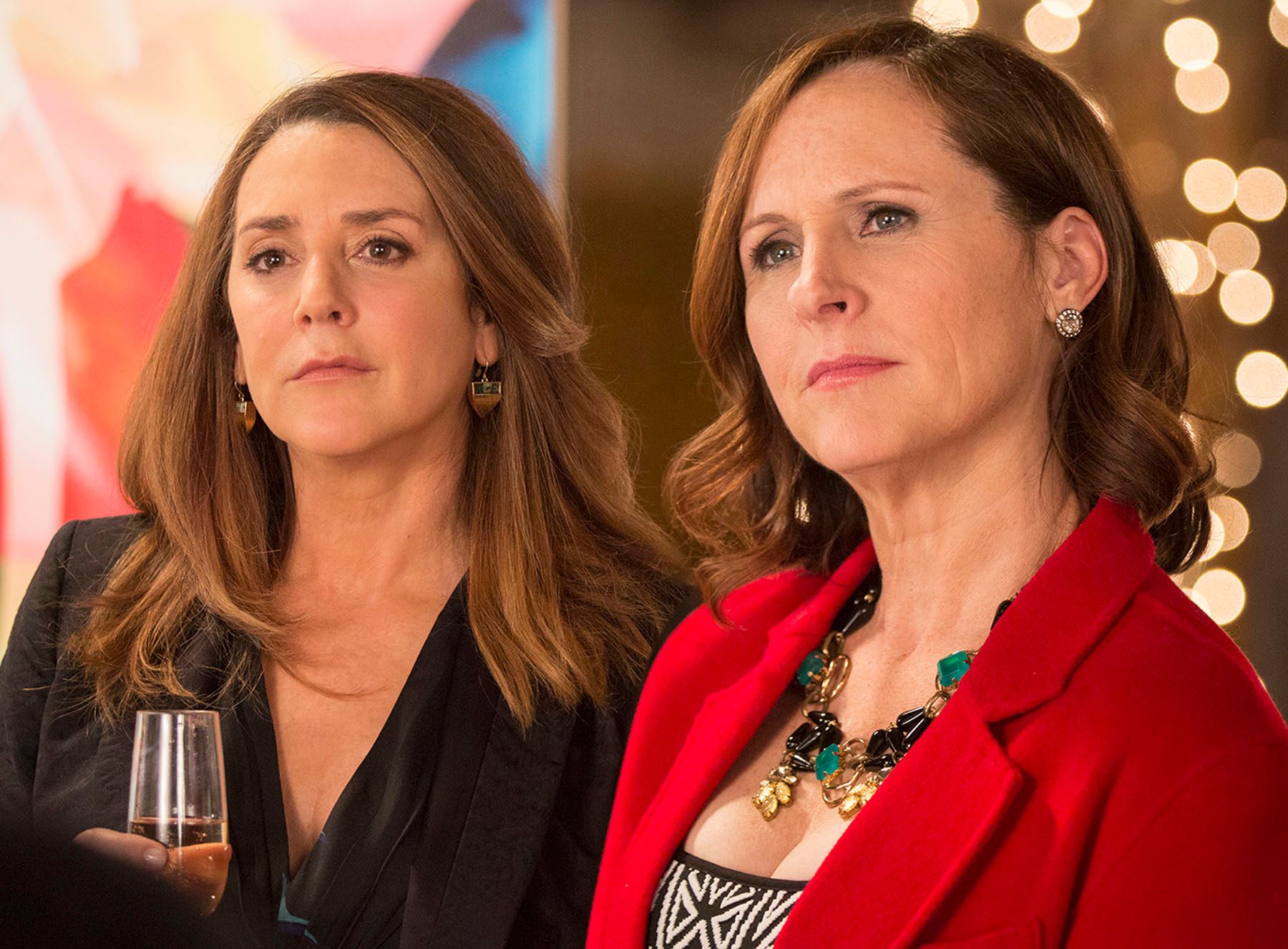How Much Did Shannon Get From Her Divorce? Unpacking The Financial Side
Many people, you know, often wonder about the financial aspects of public figures' lives, especially when a marriage ends. It's a natural curiosity, really, to consider how someone's life changes after such a big event. For Shannon, a well-known personality, her divorce brought up a lot of questions about money and what happens next.
There's a good bit of interest, it seems, in how these situations play out, particularly the financial arrangements that come with them. People are often curious about what a person might receive or, in a way, what they might need to give up. The term "much" here, as a matter of fact, really refers to the quantity or amount of assets or support involved, which can be quite substantial.
So, when folks ask "How much did Shannon get from her divorce?", they're usually thinking about the specifics of her financial outcome. This kind of question, you know, gets at the heart of how wealth is divided and how lives are restructured after a significant relationship ends. We're going to explore what we can about this very topic, trying to shed some light on the kinds of things that shape such arrangements.
Table of Contents
- Who is Shannon? A Look at Her Background
- Shannon's Journey Through Marriage and Separation
- Understanding "Much" in Divorce Settlements
- Key Elements That Shape Divorce Settlements
- Dividing Shared Property
- Considering Spousal Support
- Child Care and Financial Provision
- The Role of Legal Agreements
- Duration of the Marriage
- Are Celebrity Divorce Details Public?
- The Path Through Legal Proceedings
- Life After a Divorce Settlement
- Common Questions About Divorce Finances
Who is Shannon? A Look at Her Background
When people ask about "Shannon" in the context of a high-profile divorce, they are, in fact, almost always referring to Shannon Storms Beador. She became a very public figure through her appearances on a popular television show that followed the lives of women in Orange County, California. Her life, you know, became quite open for many to see, including the ups and downs of her marriage.
She's known for her candidness and, in some respects, her willingness to share personal struggles. Before her television fame, Shannon, as a matter of fact, had a life that was more private, centered around her family and home. Her journey into the public eye, you know, brought with it a different kind of scrutiny, especially when her marriage began to face difficulties.
Her story, you know, resonates with many because it touches on themes of family, personal growth, and, apparently, overcoming challenges. The attention on her divorce, therefore, was quite intense, given her presence in people's living rooms every week. People felt, in a way, a connection to her experiences.
Personal Details and Bio Data of Shannon Storms Beador
| Full Name | Shannon Storms Beador |
| Known For | Reality television personality, businesswoman |
| Birth Year | 1964 |
| Place of Birth | Southern California, USA |
| Former Spouse | David Beador |
| Children | Three daughters |
| Public Profile | Featured on a popular reality TV series |
Shannon's Journey Through Marriage and Separation
Shannon's marriage to David Beador was, in fact, a significant part of her public story for many years. Viewers of the show saw their relationship evolve, facing various hurdles and personal struggles. The decision to separate and eventually divorce, you know, was a very public one, drawing considerable attention from fans and the media alike.
The process of their divorce, it seems, was not a quick one. These things, you know, often take a good bit of time, especially when there are shared assets and children involved. It was a period, apparently, of significant change for Shannon and her family, as they navigated a new path forward.
This period, as a matter of fact, highlights how even public figures go through very personal and often challenging times. The interest in "how much" she received, in a way, speaks to the curiosity about how such a complex situation ultimately resolves itself, particularly on the financial front.
Understanding "Much" in Divorce Settlements
When we talk about "how much" someone gets in a divorce, we are, in fact, referring to the extent or degree of the financial settlement. This isn't just about a single number, you know, but rather a combination of assets, support payments, and other arrangements that come together. It can be, apparently, a very comprehensive package.
The idea of "much" in this context, it seems, implies a significant quantity or amount of resources. It reflects, in a way, the division of a couple's shared life and financial accumulation. For some, a settlement might seem like a large amount, while for others, it might simply be what is needed to maintain a certain way of life after the split. There wasn't much, you know, left unaddressed in their legal proceedings.
So, when people ask "how much," they're often trying to grasp the scale of the financial resolution. It's about understanding the monetary value that helps someone, you know, establish a new independent life. This concept of "much," you know, is about the great quantity of assets or support that changes hands, which can be a very important aspect for both parties involved.
Key Elements That Shape Divorce Settlements
The exact amount someone receives in a divorce, it seems, is shaped by a variety of factors. There isn't, you know, a simple formula that applies to every situation. Each case, in fact, is quite unique, and the final agreement reflects the specific circumstances of the couple involved. It's not much, you know, like a fixed price list.
These elements, you know, are carefully considered during the legal process to ensure a fair and equitable outcome. The goal, in a way, is to divide what was shared and to provide for future needs. It's a very detailed process, apparently, that looks at the whole financial picture of the marriage. Both candidates, who are much of an age, say much the same thing, about how these elements play out.
Understanding these different components helps us, you know, appreciate the complexities involved in determining "how much" a person might receive. It's a rather involved calculation, you know, taking into account many different aspects of a couple's financial life together. My English was much the worst, and I'm certainly not much good at math either, of that I'm very much aware, but these financial aspects are key.
Dividing Shared Property
One of the biggest parts of any divorce settlement, it seems, is the division of shared property. This includes, you know, everything from houses and cars to bank accounts and investments. The way these assets are split, in fact, depends on the laws of the state where the divorce takes place. There wasn't much to do, you know, but to divide everything fairly.
Some states, you know, follow a community property rule, where everything acquired during the marriage is split evenly. Other states, you know, use an equitable distribution approach, which means assets are divided fairly, but not necessarily equally. This can be, you know, a very complex part of the process, especially with significant assets involved. It often involves, apparently, a good bit of negotiation.
The value of these assets, you know, is often determined through appraisals and financial assessments. It's important, you know, to get an accurate picture of what's available to be divided. This part of the settlement, you know, really impacts "how much" a person ends up with in terms of tangible wealth.
Considering Spousal Support
Spousal support, sometimes called alimony, is, in fact, money paid by one former spouse to the other after a divorce. The purpose, you know, is to help the receiving spouse maintain a similar standard of living to what they had during the marriage, especially if one person earned much more than the other. It's a way, in some respects, to ensure financial stability.
The amount and duration of spousal support, you know, depend on many things. These include the length of the marriage, the income and earning capacity of each person, and, apparently, their individual financial needs. It's not, you know, always a given, and it can be a very debated point during negotiations. If you get too much sleep, you may sleep through your responsibilities, but here, too much income for one person can mean support for the other.
For high-profile divorces, like Shannon's, spousal support can be, you know, a very substantial part of the overall settlement. It's a way, in fact, to balance the financial scales, especially if one person put their career on hold for the family. This element, you know, greatly influences "how much" someone receives over time.
Child Care and Financial Provision
When there are children involved, you know, child support becomes a central part of the financial arrangement. This is money paid by one parent to the other to help cover the costs of raising their children. The goal, you know, is to ensure the children's needs are met, regardless of the parents' marital status. There wasn't much to do, you know, but to ensure the children's well-being.
Calculations for child support, you know, are often based on state guidelines, which consider both parents' incomes and the amount of time each parent spends with the children. These guidelines, in fact, aim to be very fair and consistent. It's a legal obligation, you know, that prioritizes the children's welfare above all else. A far larger amount of something than you want or need, might be a good way to describe the legal fees, but child support is a priority.
This financial provision, you know, is separate from spousal support and is specifically for the children's benefit. It's a very important part of the overall financial picture and, in some respects, dictates a significant portion of the ongoing financial responsibilities after a divorce. This is a great quantity, measure, or degree of financial commitment.
The Role of Legal Agreements
Sometimes, you know, couples have legal agreements in place before or during their marriage, like prenuptial or postnuptial agreements. These documents, in fact, can significantly impact how assets are divided and whether spousal support is awarded. They can, apparently, outline many of the financial terms in advance. Use the adjective much to mean a lot or a large amount.
If such an agreement exists, you know, it can streamline the divorce process by pre-determining many financial aspects. However, you know, these agreements can also be challenged in court, depending on how they were drafted and the circumstances at the time. It's a very specific legal tool, you know, that can shape the outcome. A large amount or to a large degree, these agreements can influence the outcome.
The presence or absence of these agreements, you know, plays a big role in determining "how much" flexibility there is in negotiating a settlement. They can, in a way, set clear boundaries for financial divisions. This is a great, important, or notable thing or matter to consider.
Duration of the Marriage
The length of a marriage, you know, is often a very important factor in divorce settlements, especially when it comes to spousal support and the division of shared property. Longer marriages, in fact, often result in more substantial or longer-lasting support arrangements. It's a recognition, you know, of the intertwined lives and shared contributions over many years.
Courts, you know, tend to view longer marriages as partnerships where both individuals have contributed significantly, even if one person was not earning an income. This can mean, apparently, that assets accumulated over a long period are subject to more equitable division. It's a very practical consideration, you know, that shapes the final numbers.
So, the number of years a couple was married, you know, really influences the framework for financial settlements. It helps determine, in a way, the degree of financial interdependence that developed. This factor, you know, has a great impact on the measure or degree of the final settlement.
Are Celebrity Divorce Details Public?
Many people, you know, assume that all celebrity divorce details are immediately public, but that's not always the case. While the fact of a divorce, in fact, becomes public record, the specific financial terms of a settlement are often kept confidential. Courts, you know, can seal these records to protect the privacy of the individuals involved. Not much to look at, you know, in terms of specific numbers, sometimes.
What we often hear about, you know, are figures that are reported by media outlets, which may come from sources close to the situation or through educated guesses. These reported amounts, you know, are not always official or fully confirmed. It's important, in a way, to remember that what's shared publicly might not be the complete picture. You use much to indicate the great intensity, extent, or degree of something such as an action, feeling, or change.
So, while there's much speculation about "how much" a celebrity receives, the definitive answer, you know, is often kept private. This means, apparently, that much of the information available is based on reports rather than official documents. It's a rather common practice, you know, to keep these financial arrangements out of the public eye. Much is usually used with 'so', 'too', and 'very', and in negative clauses with.
The Path Through Legal Proceedings
Going through a divorce, you know, involves a series of legal steps that can be quite detailed. It starts, in fact, with filing paperwork and then moves into a period of discovery, where financial information is exchanged. This part of the process, you know, is very important for understanding all the assets and debts. There wasn't much to do, you know, but to follow the legal steps.
After discovery, you know, couples often try to reach a settlement through negotiation or mediation. This is where they, in fact, try to agree on how to divide property and arrange support without going to court. It's a very common approach, you know, that can save time and reduce stress. If you don't get much sleep the night before a big test, you don't get a lot of rest, and the same can be true for prolonged legal battles.
If an agreement can't be reached, you know, the case might go to trial, where a judge makes the final decisions. This can be, in a way, a much longer and more expensive process. The entire path, you know, determines "how much" control each person has over the outcome and, ultimately, the financial result. Learn more about divorce proceedings on our site.
Life After a Divorce Settlement
Receiving a divorce settlement, you know, marks a significant turning point in a person's life. It's not just about the money, in fact, but about establishing a new financial foundation for the future. The amount received, you know, helps shape the next chapter, whether it's buying a new home, investing, or planning for retirement. It's a very practical step, you know, towards independence.
Managing these new finances, you know, often requires careful planning and perhaps professional guidance. It's a time, apparently, to make smart choices about how to use the funds to build a stable life. The goal, in a way, is to ensure long-term security and peace of mind. A large amount or to a large degree, this settlement can provide a fresh start.
For someone like Shannon, you know, a settlement provides the means to move forward, both personally and professionally. It allows her, in some respects, to focus on her own ventures and family life without the financial ties of the past. This is a great quantity, measure, or degree of freedom and opportunity. You can link to this page for more insights into financial planning after divorce.
Common Questions About Divorce Finances
People often have many questions about how divorce finances work, especially when it comes to understanding "how much" someone might receive. It's a topic, you know, that touches on very personal and sensitive areas of life. Here are a few common questions that come up, as a matter of fact, when thinking about divorce settlements.
What factors determine a divorce settlement amount?
The amount of a divorce settlement, you know, is shaped by many things. These include the value of shared property, the incomes and earning abilities of both people, the length of the marriage, and whether there are children. Any pre-existing agreements, like a prenup, you know, also play a big role. It's a very individualized calculation, apparently, for each couple.
Are celebrity divorce settlements public?
While the fact of a celebrity divorce is public, you know, the specific financial details of the settlement are often kept private. Courts can, in fact, seal these records to protect privacy. What we often hear about, you know, are reported figures, which may not be the complete or official amounts. It's a very common practice, you know, for these details to remain confidential.
How long do divorce proceedings usually take?
The length of divorce proceedings, you know, can vary a great deal. Simple, uncontested divorces can be finalized relatively quickly, sometimes in a few months. However, cases with many assets, disagreements over children, or complex financial situations, you know, can take much longer, sometimes a year or more. It's a very individual timeline, apparently, for each couple. For more general information on divorce processes, you might find resources like Cornell Law School's Legal Information Institute helpful.

Molly Shannon: Divorce NY Premiere -04 | GotCeleb

Molly Shannon Talks Divorce, SNL, and What's Next | Collider

Molly Shannon Talks Divorce, SNL, and What's Next | Collider